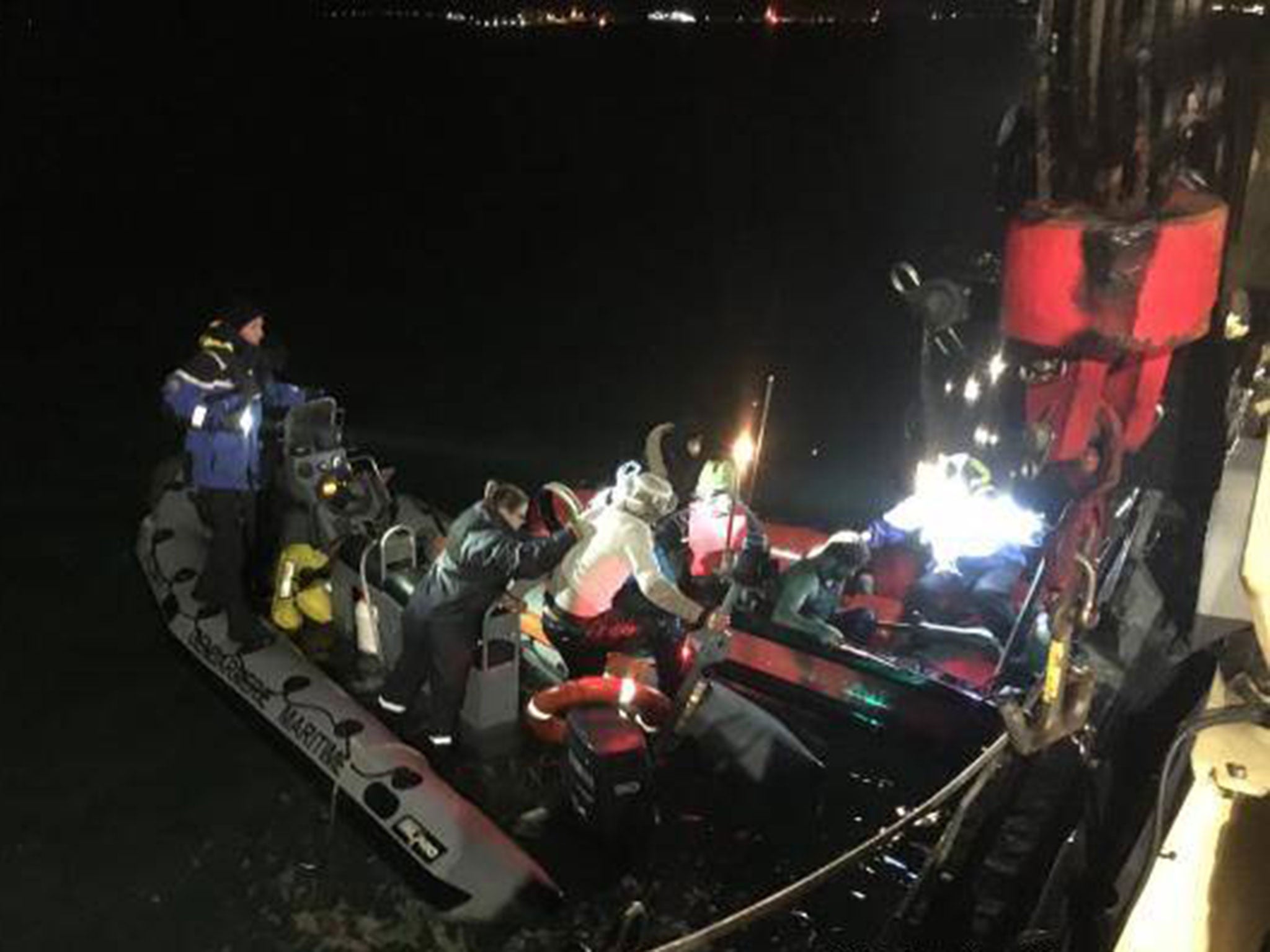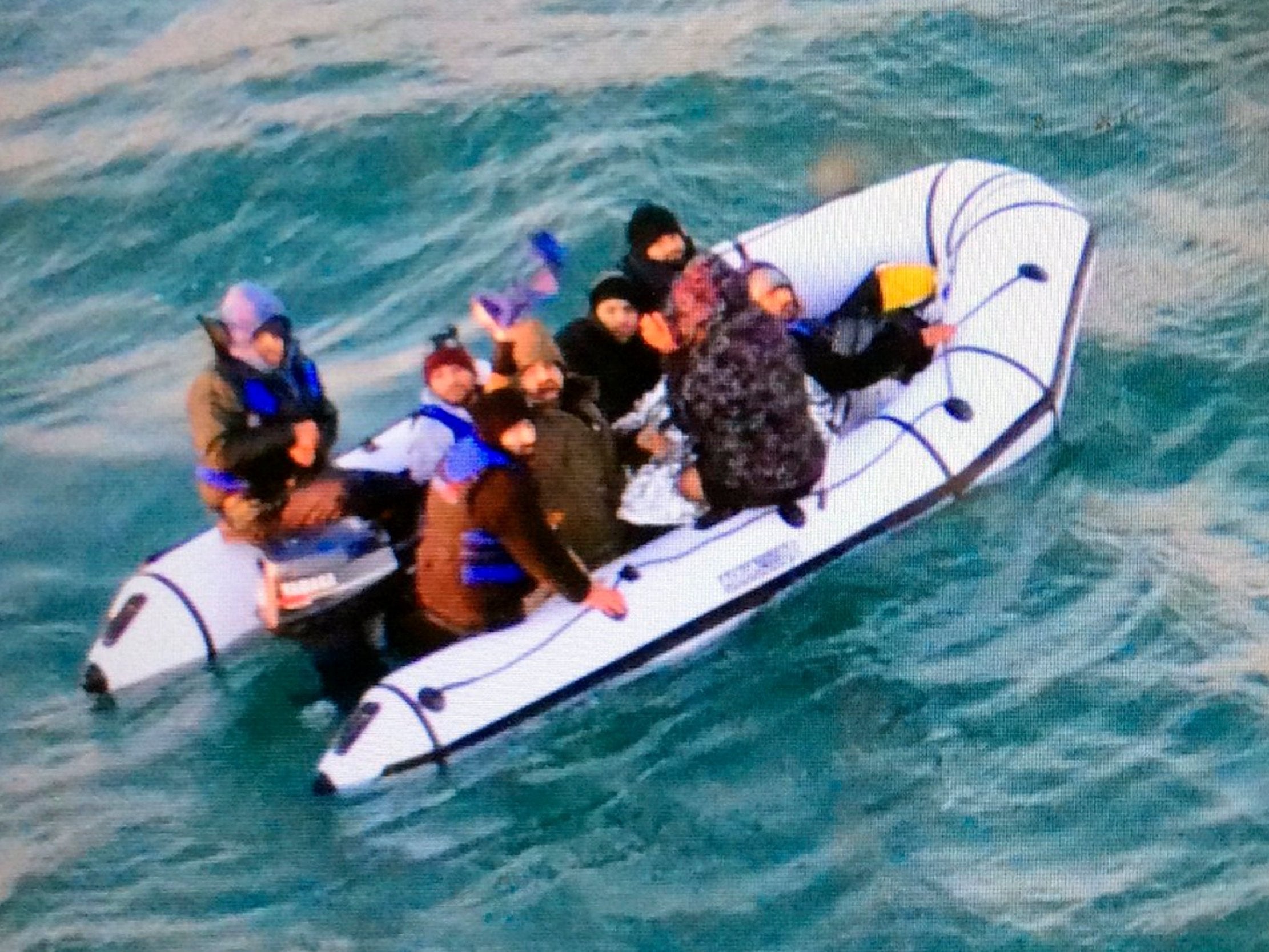More migrant boats will head for UK, investigators say as Home Office declares ‘major incident’
MPs warn of ‘real risk of tragedy’ after more than 17,700 people drown in Mediterranean refugee crisis
Your support helps us to tell the story
From reproductive rights to climate change to Big Tech, The Independent is on the ground when the story is developing. Whether it's investigating the financials of Elon Musk's pro-Trump PAC or producing our latest documentary, 'The A Word', which shines a light on the American women fighting for reproductive rights, we know how important it is to parse out the facts from the messaging.
At such a critical moment in US history, we need reporters on the ground. Your donation allows us to keep sending journalists to speak to both sides of the story.
The Independent is trusted by Americans across the entire political spectrum. And unlike many other quality news outlets, we choose not to lock Americans out of our reporting and analysis with paywalls. We believe quality journalism should be available to everyone, paid for by those who can afford it.
Your support makes all the difference.More migrants will be sent into the English Channel in dinghies by smugglers “with a complete lack of regard for human life”, officials have warned after the rescue of dozens of men, women and children.
Almost 100 people have been intercepted by both British and French authorities while attempting to reach the UK since Christmas Day, in an influx that has caught the government off-guard.
The home secretary has classified the crossings as a “major incident” amid accusations the UK had lost control of its sea border.
The migrants, mainly claiming to be from Iran and Syria, include women, children and people found suffering from hypothermia.
Sporadic crossings have been seen since the start of the Mediterranean refugee crisis in 2014, but numbers in the Channel started to increase in November.
The National Crime Agency (NCA), which works to combat people smuggling, could not immediately confirm whether crossings seen in recent days were linked.
An official told The Independent that all boats had been launched from France, and that while some launches involved criminal groups, others were “opportunistic”.
Investigators believe that increased security in Calais, where migrants have previously boarded lorries through the Channel Tunnel, and other French ports may have contributed to the spike in dinghy crossings.
Unseasonably calm weather and sea conditions could also be a factor behind the sudden influx – a pattern previously seen with migrant boat launches by people smugglers in Libya.
Despite the high-profile closure of the “Jungle” in Calais, migrants have remained at informal camps along the northern French coast and smugglers continue to open new routes across Europe from arrival points in Italy, Greece and Spain.

Chris Hogben, head of the NCA-led Invigor organised immigration crime taskforce, said: “Trying to cross the Channel in this way is highly dangerous. While some of these attempts appear to have been opportunistic, we do know that there have been organised criminals with a complete lack of regard for human life involved in organising many of them.
“As part of the overall response to these attempts the NCA-led organised immigration crime task force is working closely with law enforcement partners in the UK and France, as well as upstream in Europe and further afield, to gather intelligence and disrupt such networks.
“Our assessment is that more of these types of attempts to reach the UK are likely.”
Mr Hogben said the organised criminals behind the most recent attempts are in the main not UK-based, and that several suspected facilitators have been arrested and charged in France.
Amid mounting domestic criticism, some have suggested that people smugglers may be taking advantage of insufficient patrols by Border Force vessels and the coastguard over the festive period.
Sajid Javid intervened to “ensure everything possible is being done” to disrupt the activity on Friday, the Home Office said.
The home secretary held a conference call with key officials in Border Force, immigration enforcement and the NCA to be briefed on the latest intelligence and action being taken.
Mr Javid has also asked for an urgent call with his French counterpart and demanded information on the potential for additional Border Force vessels in the Channel, after it emerged that only one cutter was operational.
Following fierce debate over the role of rescue ships in the Mediterranean, the Home Office said he had asked whether the move would “be likely to encourage more people to try and make the crossing rather than act as a deterrent”.

Caroline Nokes, the immigration minister, was to visit Border Force officers in Dover on Saturday and meet local MP Charlie Elphick to discuss the situation in Kent.
She has called rise in incidents “deeply concerning” and said officials were working through the new UK-France Coordination and Information Centre which opened in Calais last month.
“Attempting to cross the Channel in this way is extremely dangerous and they are putting their lives at risk,” Ms Nokes added.
Yvette Cooper, chair of the Home Affairs Committee, said there was a “real risk of tragedy if urgent action isn’t taken”.
MPs raised the issue with Mr Javid in November and were told that work to reduce crossings was underway, she said.
“However the problem is clearly getting worse and we will be pursuing this again when Parliament returns,” the Labour MP added.
“We need to know what action the Home Office is taking, with the French government and other European governments, to prevent these perilous, illegal journeys, to ensure people seeking asylum can do so safely, that dangerous smuggling gangs are tackled, and that vulnerable people are protected.”
Ms Cooper called for work through Europol – which the UK could be kicked out of after Brexit – and other agencies to combat the well-known presence of people smugglers in French migrant camps.
She said that refugees in mainland Europe should be given access to asylum claims, warmth, shelter and formal family reunion procedures “so refugees don’t end up risking their lives as the only way to re-join relatives in the UK”.
Earlier this year, the NCA’s deputy director Tom Dowdall told The Independent Iranians were paying smugglers up to £30,000 to reach the UK.
Mr Dowdall, the agency’s lead on human trafficking, said smugglers were “constantly changing” their modus operandi to avoid European law enforcement.
Although international attention on the Mediterranean refugee crisis, which has seen more than 17,700 people drown trying to reach Europe since the start of 2014, has waned Mr Dowdall warned that it had not stopped.
He said that controversial push-back operations in Libya had created a “bottleneck” of at least 700,000 mainly sub-Saharan African migrants in the war-torn country, where slavery, extortion and torture is rife.
The flow of Middle Eastern migrants over the Aegean Sea from Turkey has also continued, and Mr Dowdall said many Iraqis, Syrians, Afghans and Iranians “may well see the UK as a destination point”.
France’s Préfet Maritime has issued an appeal for migrants not to attempt the crossings, warning that rough seas can sink boats and weather conditions can cause hypothermia.
A statement said people were putting their lives at risk and “called for responsibility by adults who in attempting these crossings, are putting themselves and children in the boats at risk”.

Join our commenting forum
Join thought-provoking conversations, follow other Independent readers and see their replies
Comments